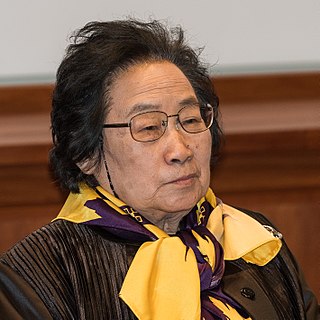A Quote by Bill Gates
I really do think cancer will largely be a solved problem. I think most of the infectious diseases like malaria - our foundation is very involved - once we're finishing polio eradication, then starting up this malaria eradication, and getting that done as fast as we can.
Related Quotes
The monetary impacts of malaria from the household to the global level are significant. Malaria tends to strike during harvest season, rendering families too sick and too weak to perform the work necessary to earn a living. Malaria-stricken families spend an average of over a quarter of their income on malaria treatment.
Look at the ozone story. As long as it was the southern hemisphere that was being threatened, there was very little talk about it. When it was discovered in the north, very quickly actions were taken to do something about it. Right now there's discussion of putting serious effort into developing a malaria vaccine, because global warming might extend malaria to the rich countries, so something should be done about it.






























